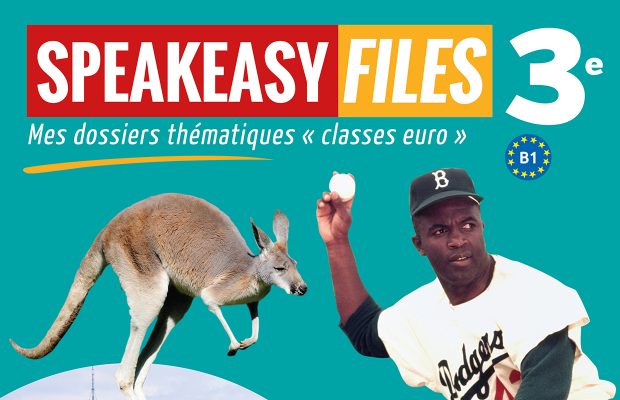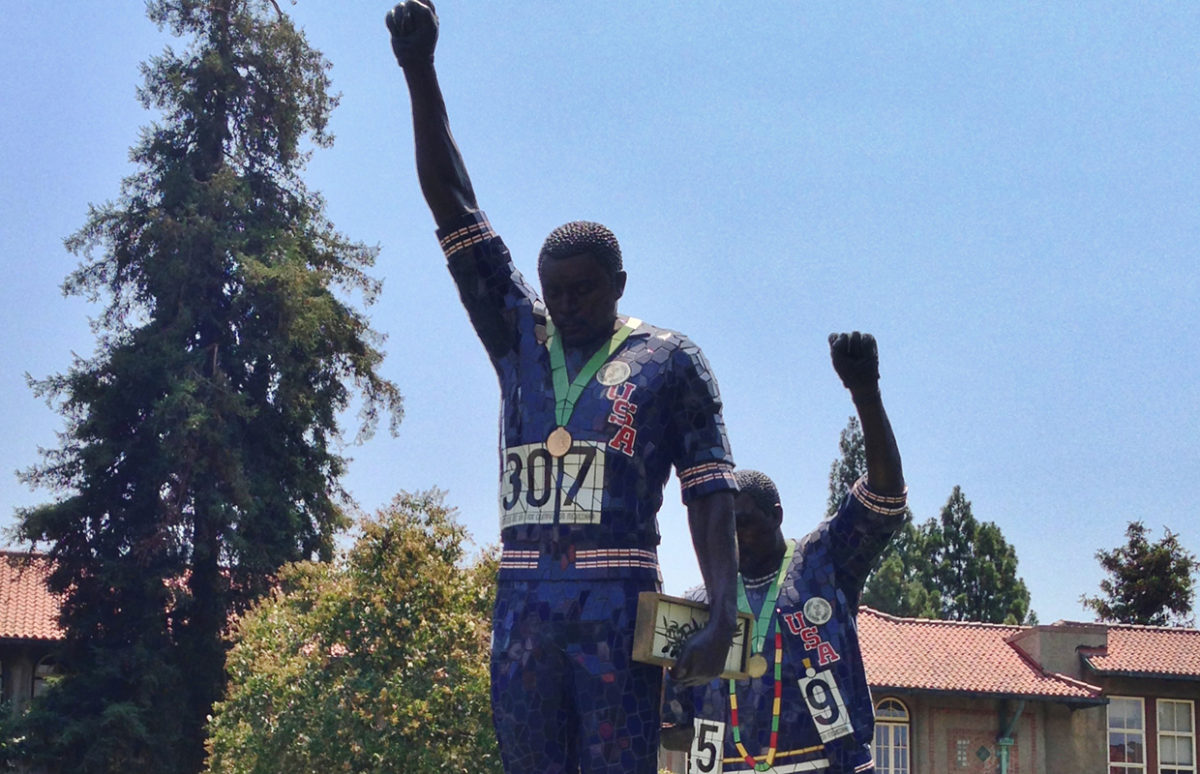The silent protest of two African American athletes on the podium at the 1968 Mexico Olympics was an iconic moment in civil-rights history. We've selected some teaching tools for language classes on the Black Power protest.
In 2016, the prestigious Smithsonian opened a new, and long-awaited museum, the National Museum of African American History and Culture. One of the museum's permanent galleries is called Sports: Leveling the Playing Field. As the introductory text says:
Because sports were among the first, and most high profile spaces to accept African Americans on relative terms of equality, sport has had a unique role within American culture. Within black communities, sports have always been political. From the refusal to allow African Americans an opportunity to compete to the formation of African American segregated sporting teams and leagues; from the hard won battles to compete at the highest levels of the game to the introduction of African American expressive cultural practices within the games, the African American presence in sports has had social and political consequences.
The gallery features a life-size statue of Tommie Smith and John Carlos, who used their Olympic medal ceremony to make a Black Power salute and protest in favour of civil rights. This video is a good summary of their action. It is part of a collection of videos produced by NBC and the Equal Justice Initiative called Voices of the Civil Rights Movement.
It is presented by civil-rights campaigner and lawyer D'Army Bailey, the founder of the National Civil Rights Museum in Memphis, Tennessee. He speaks very slowly and clearly, but the video is more appropriate from B1 because of the specific vocabulary. A2 students can still get a lot from the images, and could understand the voiceover better if they have studied the subject and built up the lexical field.

Find more on the theme of standing up for your rights through sport in Speakeasy Files 3e: including an extract of Tommie Smith's biography, Jackie Robinson, Mia Hamm and more.
And don't miss our Ready to Use Resource on Colin Kaepernick's national anthem protests as a modern-day connection to this historic protest.
The Conditions Faced by Black Athletes
For students from B1+, this is a very interesting interview by sociology professor Dr Harry Edwards, who initiated the protests calling for a boycott of the Olympics by African American athletes, and inspired his students Carlos and Smith. Unfortunately the webpage displays bizarrely, but it's worth selecting extracts for students to study.
For example:
"The 1968 Olympic protest was something that I originated. It grew out of the circumstances of Blacks in sports during the 1960s. I had been a student-athlete at San Jose State and graduated from there with honors in 1964. I earned my masters degree at Cornell University and then took a part-time teaching job back at San Jose State.
"All of the race-related problems that were at San Jose State when I was a student-athlete were by now exacerbated. The segregation was awful. You couldn’t live in approved housing if you were black because they were afraid white students would move out. There were restaurants we couldn’t eat in. Blacks didn’t have access to the recreation hall on campus. If you went to a dance, you almost always danced with white women because there were virtually no black women on campus. But the minute you did that you could be in big trouble."
And:
"We began to get letters from athletes all over the country. So I began traveling around the country and organizing what came to be known as the Revolt of the Black Athlete. By traveling we found out that those black athletes who were being shafted on the campuses, were the same athletes the nation depended on as part of its Olympic contingent. These black athletes could participate in the N.Y. Athletic Club’s indoor track meet at Madison Square Garden, but weren’t allowed to join the Club or be housed there with their white peers."
Copyright(s) :
San Jose State University
> Black Power at the 1968 Olympics Fifty Years On
> Muhammad Ali Floated Like a Butterfly
Tag(s) : "activism" "athletics" "Black Power" "civil rights" "interview" "Kaepernick" "national anthem" "Olympics" "protest" "salute" "social justice" "Speakeasy Files 3e" "U.S. politics" "video"





